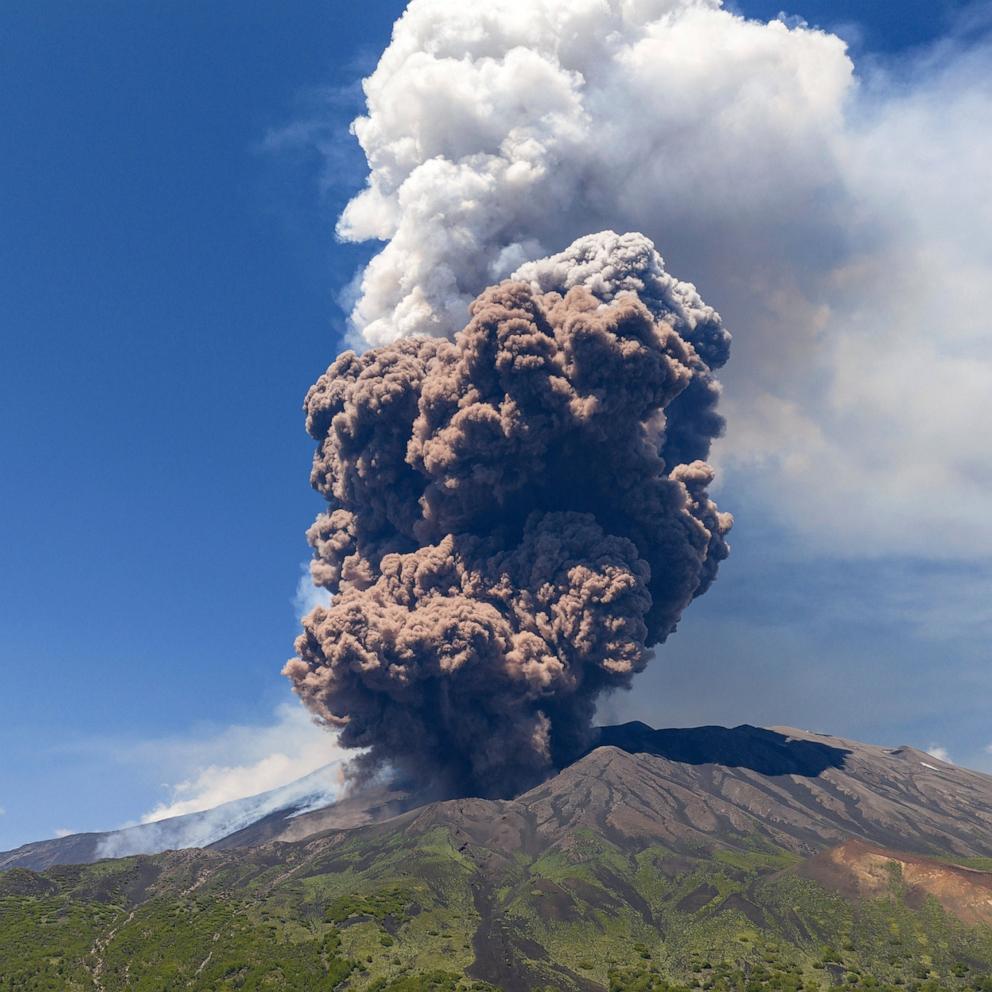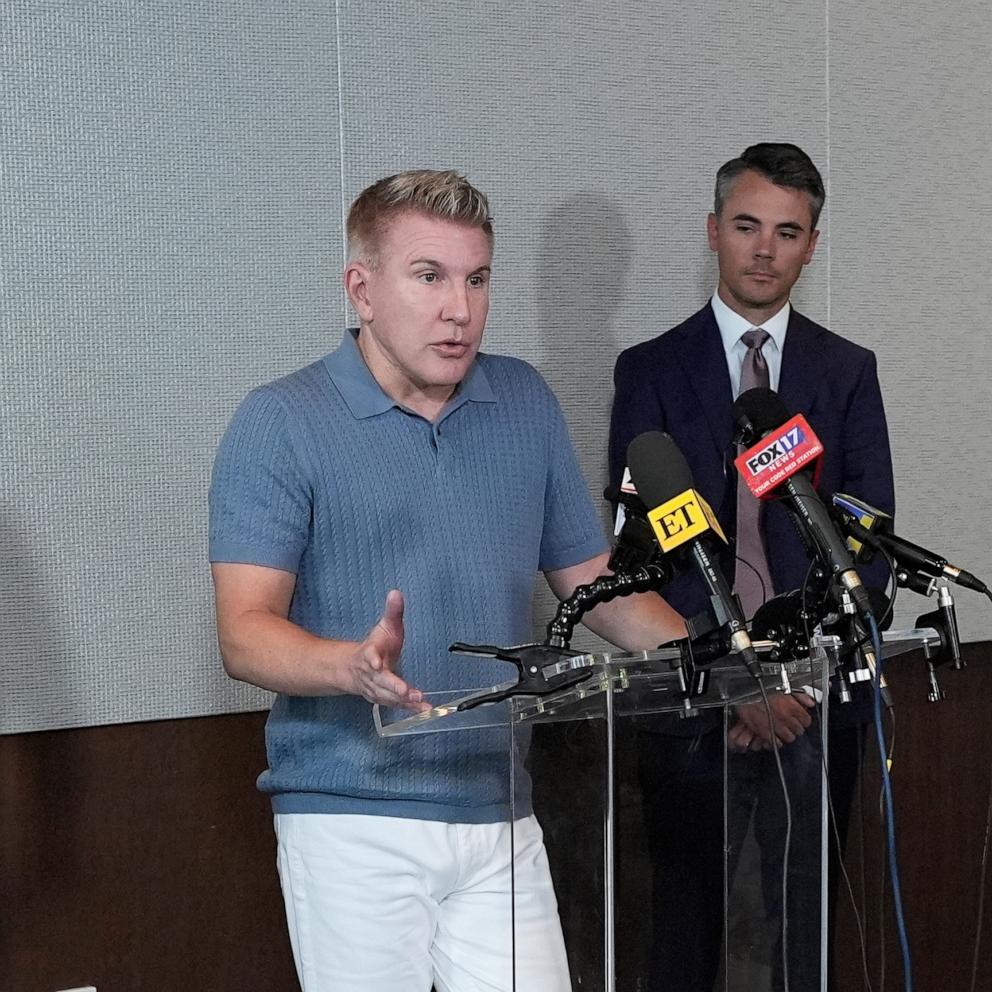What do we know about Iran's nuclear program amid different assessments?
Just how close is Iran to developing a usable nuclear weapon?
That question is at the heart of the Iran-Israel conflict -- and one that's driving how President Donald Trump responds -- but Iran's nuclear capabilities are still very much shrouded in mystery.
The status of Iran's nuclear program drew new attention and tension Tuesday when Trump publicly dismissed what Director of National Intelligence Tulsi Gabbard told Congress -- that Iran was not "building" a nuclear weapon.

However, a senior administration official with knowledge of the matter stresses that while the Iranian government doesn't appear to have a nuclear weapon yet, its recent efforts mean the situation could change quickly.
Official: Trump, Gabbard 'congruent' despite public dismissal
Trump raised eyebrows Tuesday when he responded to a reporter's question about Gabbard's testimony to the Senate Intelligence Committee in March.
"Supreme Leader [Ali] Khamenei has not authorized the nuclear weapons program he suspended in 2003," she testified.
President Trump, however, dismissed that assessment.
"I don't care what she said, I think they were very close to having one," he said.

Gabbard told CNN on Tuesday that she and President Donald Trump are "on the same page" on Iran's nuclear timeline.
She added that Trump, "was saying the same thing that I said in my annual threat assessment back in March. Unfortunately, too many people in the media don't care to actually read what I said."
Later Tuesday morning, a senior administration official tried to clarify what appeared to be conflicting assessments of Iran's progress in developing a nuclear weapon.
"Just because they're not building right now, doesn't mean they aren't 'very close' as [the president] said on Air Force One," the official said.
The official added that despite the president's statements, Trump and Gabbard were "congruent."
"All of the other points [Gabbard] made outside of the singular statement that 'Iran is not building' a nuclear weapon, point to them being very close to building one," the official said.
During her testimony, Gabbard said Iran developed and maintained "ballistic missiles, cruise missiles and UAVs, including systems capable of striking U.S. targets and allies in the region."

She added that the intelligence community "is closely monitoring if Tehran decides to reauthorize its nuclear weapons program."
"In the past year, we have seen an erosion of a decadeslong taboo in Iran on discussing nuclear weapons in public, likely emboldening nuclear weapons advocates within Iran's decision-making apparatus. Iran's enriched uranium stockpile is at its highest levels and is unprecedented for a state without nuclear weapons," Gabbard testified.
An official with the Office of the Director of National Intelligence told ABC News that Gabbard has been working closely with Trump, Vance, Secretary of State Marco Rubio and other national security officials to share regular intelligence updates.
U.S. officials say that American negotiators initially put forth a proposal that would allow Iran to enrich uranium at a low level for its nuclear energy program, but that the president later retracted the offer -- doubling down on his insistence that Iran be banned from any such activity.
What has the international community assessed?
Last week, the International Atomic Energy Agency, the global nuclear watchdog, passed a resolution that stated Iran breached its non-proliferation agreements and has been illegally stockpiling enriched uranium. The vote came following a report detailing inspections of the country's facilities that found that Iran stockpiled more than 400 kilograms of "highly enriched uranium."
"We have been seeking explanations and clarifications from Iran for the presence of these uranium particles, including through a number of high-level meetings and consultations in which I have been personally involved," IAEA Director General Rafael Mariano Grossi wrote in a statement.
"Unfortunately, Iran has repeatedly either not answered or not provided technically credible answers to the Agency's questions. It has also sought to sanitize the locations, which has impeded Agency verification activities," he added.
Grossi said that the IAEA "is not in a position to determine whether the related nuclear material is still outside of safeguards."
Iran's leaders have refuted the allegations, claiming that they are not seeking to build a nuclear weapon and calling the resolution "political."
There have been different analyses of the "breakout" timeline -- the time at which Iran's program could progress to the point at which it could achieve nuclear weapons capability.
The last time a U.S. officially publicly gave a breakout timeline was in July 2024 when then-Secretary of State Antony Blinken said it was it was one and two weeks. That's how long Iran would need to take the uranium it has and enrich enough of it to level it would need to be, around 90%, to have fissile material for a nuclear weapon.
After getting enough weapons-grade uranium, most experts estimate it would take Iran between several months to two years to actually make a deliverable nuclear warhead. But some think they could get it done a little faster -- maybe in as little as five-six weeks.
"Once you're at 60, you're 90% of the way there. You are, in essence, a threshold nuclear weapons state, which is what Iran basically has become," Secretary of State Marco Rubio said in an interview last month.
Nuclear experts told ABC News that little evidence suggests Iran had moved to weaponize its nuclear program before war broke out last week.
Yet, the country's uranium enrichment at 60% was merely days away from being enriched at a weapons-grade level -- setting a timeline of several months to a year for Tehran to potentially mount a nuclear warhead on a missile, according to Kelsey Davenport, Director for Nonproliferation Policy at the Arms Control Association.
"What was true last week, and may still be true today, is that Iran can produce enough weapons grade uranium for eight to 10 bombs in a matter of weeks," Davenport said. "But that's the production of the fissile material. Iran would still need to weaponize that, which includes, converting it into metallic form [and] fitting it with an explosive package."
Weaponization could take up to a year, she estimated.
Vice President JD Vance said Tuesday that that the IAEA's assessment needs to be taken seriously whether or not Iran has a weapon.
"It's one thing to want civilian nuclear energy. It's another thing to demand sophisticated enrichment capacity. And it's still another to cling to enrichment while simultaneously violating basic non-proliferation obligations and enriching right to the point of weapons-grade uranium," he wrote on X.
Israeli Prime Minister Benjamin Netanyahu said in speech Friday just after the Israeli attacks on Iran started that he needed to act quickly because the threat of a nuclear-armed Iran could be imminent.
"In recent months, Iran has taken steps that it has never taken before, steps to weaponize this enriched uranium, and if not stopped, Iran could produce a nuclear weapon in a very short time," he said. "It could be a year. It could be within a few months, less than a year. This is a clear and present danger to Israel's very survival."
The prime minister told ABC News Monday that the Israeli government "had very solid intel" on the Iranian government's plans.
"They want to keep on building their nuclear weapons and building their mass ballistic missile arsenal, which they're firing at our people. They want to continue to create the two existential threats against Israel while they're talking. That's not going to happen."

Davenport said Israel's targets thus far – including scientists and military commanders – suggest they didn't detect an "imminent threat" or knew of a weaponization program – but more likely perceived of a threat on the yearlong timeline.
"If the weaponization evidence was compelling, if this was driven by an imminent proliferation risk, the Israelis would have done more to try to disrupt activities at Fordo" in the campaign so far, Davenport said. "They cannot destroy Fordo, but I think they could have tried to block the entrances. The pattern of military strikes do not support the assessment of this imminent proliferation risk, in my opinion."
Still, "there's a risk that Iran has undeclared facilities," Davenport said, and that "Tehran may have already produced material enriched to weapons grade levels."
An official with the ODNI told ABC News Tuesday that the United States and Israel have a long-standing intelligence-sharing relationship.
The IAEA has warned that Israel's attacks are of grave concern but also that its nuclear facilities should not be attacked due to major contamination risks.
"I call on all parties to exercise maximum restraint to avoid further escalation. I reiterate that any military action that jeopardizes the safety and security of nuclear facilities risks grave consequences for the people of Iran, the region, and beyond," Grossi said.




